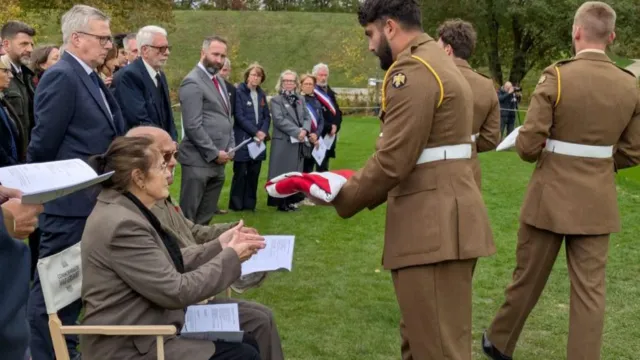
By : Chinasaokwu Helen Okoro
108 Years On: WWI Soldiers Finally Laid to Rest with Full Military Honours in France
More than a century after their deaths on the battlefields of northern France, four British soldiers from World War One have finally been laid to rest with full military honours. The remains of Privates Arthur Cook, Robert Cullum, John Fraser, and William London — all from the 1/5 Battalion, Lincolnshire Regiment — were reburied in a solemn ceremony at the Loos British Cemetery Extension near Lens, France.
The four men, all hailing from Grimsby and serving together as part of the same Lewis gun team, were killed on 5 May 1917 during the bloody Battle of Arras. Their remains were discovered more than a century later, in the summer of 2020, during construction work for a new hospital in Lens.
Archaeologists working on the site uncovered the soldiers’ remains alongside several artifacts that helped identify them. Among these were shoulder titles confirming their affiliation with the Lincolnshire Regiment, small box respirators that were introduced in August 1916, and a pair of boots with a 1917 date stamped on the sole. These clues provided crucial evidence linking the remains to the four privates who had been listed as missing in action for over a hundred years.
The reburial ceremony on Tuesday was attended by military personnel, representatives from the Commonwealth War Graves Commission (CWGC), and descendants of the fallen soldiers. For the families, it was a moment of deep emotion and closure — the end of a 108-year wait to see their ancestors finally honoured and laid to rest with dignity.
Alexia Clark, from the Joint Casualty and Compassionate Centre (JCCC) — often referred to as the Ministry of Defence’s “war detectives” — led the investigation that identified the soldiers. She described the experience as both humbling and rewarding.
> “It has been a privilege to research this case, to be successful in identifying these four men and to organise their burial service,” Ms Clark said. “When you consider that half a million men are still missing from the First and Second World Wars, every one we can identify feels like an achievement. I am delighted that these four men have now been laid to rest alongside their comrades in a dignified burial which they had been denied for so long.”
She also expressed gratitude to the Royal Anglian Regiment for providing the bearer and firing parties during the service, and to the families who travelled to France to pay their respects.
The graves of the four soldiers will now be maintained in perpetuity by the Commonwealth War Graves Commission. David Royle, the CWGC’s commemorations casework manager, said the organisation was honoured to play a part in giving the men their rightful resting place.
> “Following the recovery of these casualties by our specialist team in 2020, it was a privilege to investigate the identification of Privates Fraser, London, Cullum, and Cook alongside others recovered from the site where the Lens hospital now stands,” Royle said. “It was an honour to be a small part of their story, especially since their names are now known and we can provide a peaceful resting place where future generations can visit. We will continue to care for the graves of these four brave men in perpetuity.”
The Battle of Arras, in which the four soldiers perished, remains one of the most brutal and costly campaigns of the First World War, claiming thousands of British and Commonwealth lives. For decades, many of those who fell were never recovered or identified — their names instead carved into memorials across Europe.
Now, 108 years later, the discovery and reburial of Privates Cook, Cullum, Fraser, and London serve as a poignant reminder of the human cost of war — and of the enduring effort to ensure that no soldier’s sacrifice is ever forgotten.



 India Mourns the Man Who Made a Nation Laugh — Tributes Flow for Veteran Actor Asrani
India Mourns the Man Who Made a Nation Laugh — Tributes Flow for Veteran Actor Asrani  Justice Comes from Courts, Not Street Protests — Nigeria Presidency Warns Sowore
Justice Comes from Courts, Not Street Protests — Nigeria Presidency Warns Sowore 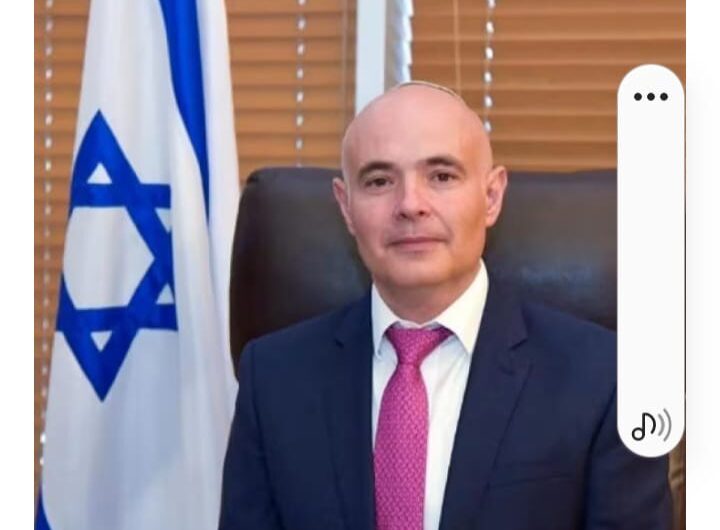 Israel to Deport Nigerian Over ‘PR Stunt’ Gaza Aid Flotilla – Envoy Michael Freeman
Israel to Deport Nigerian Over ‘PR Stunt’ Gaza Aid Flotilla – Envoy Michael Freeman 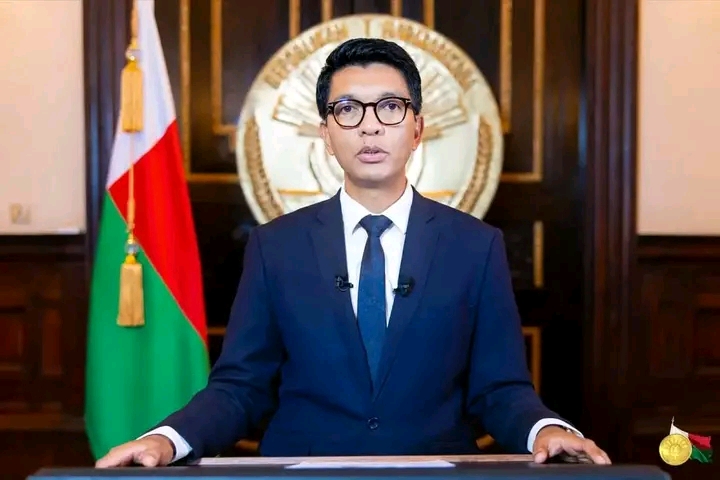 ⬆️ REGIONAL | Madagascar Army Overthrows President Rajoelina Amid Nationwide Protests
⬆️ REGIONAL | Madagascar Army Overthrows President Rajoelina Amid Nationwide Protests  NEMA DG urges states to build resilience in emergence management
NEMA DG urges states to build resilience in emergence management 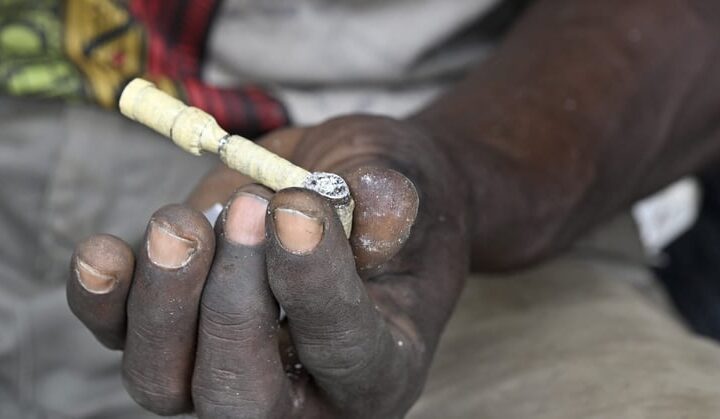 Cocaine Trafficking Through West Africa Fuels Local Addiction
Cocaine Trafficking Through West Africa Fuels Local Addiction 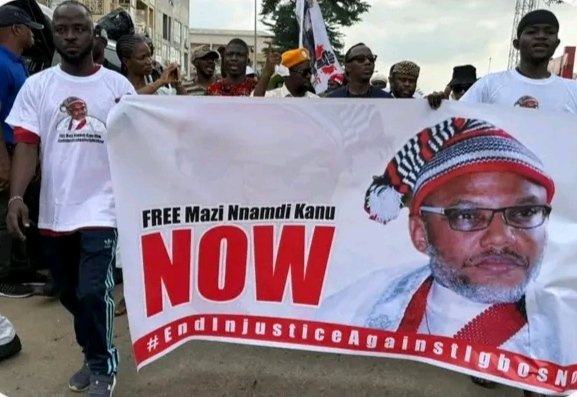 Nigeria’s Battle Over Nnamdi Kanu’s Freedom Turns the Courtroom into the New Protest Ground
Nigeria’s Battle Over Nnamdi Kanu’s Freedom Turns the Courtroom into the New Protest Ground  Eight Pupils Suspended After Brutal Bullying Video Sparks National Outrage in South Africa
Eight Pupils Suspended After Brutal Bullying Video Sparks National Outrage in South Africa  Nnamdi Kanu Opens Defence, Calls Wike, Umahi, Buratai, Others to Testify
Nnamdi Kanu Opens Defence, Calls Wike, Umahi, Buratai, Others to Testify